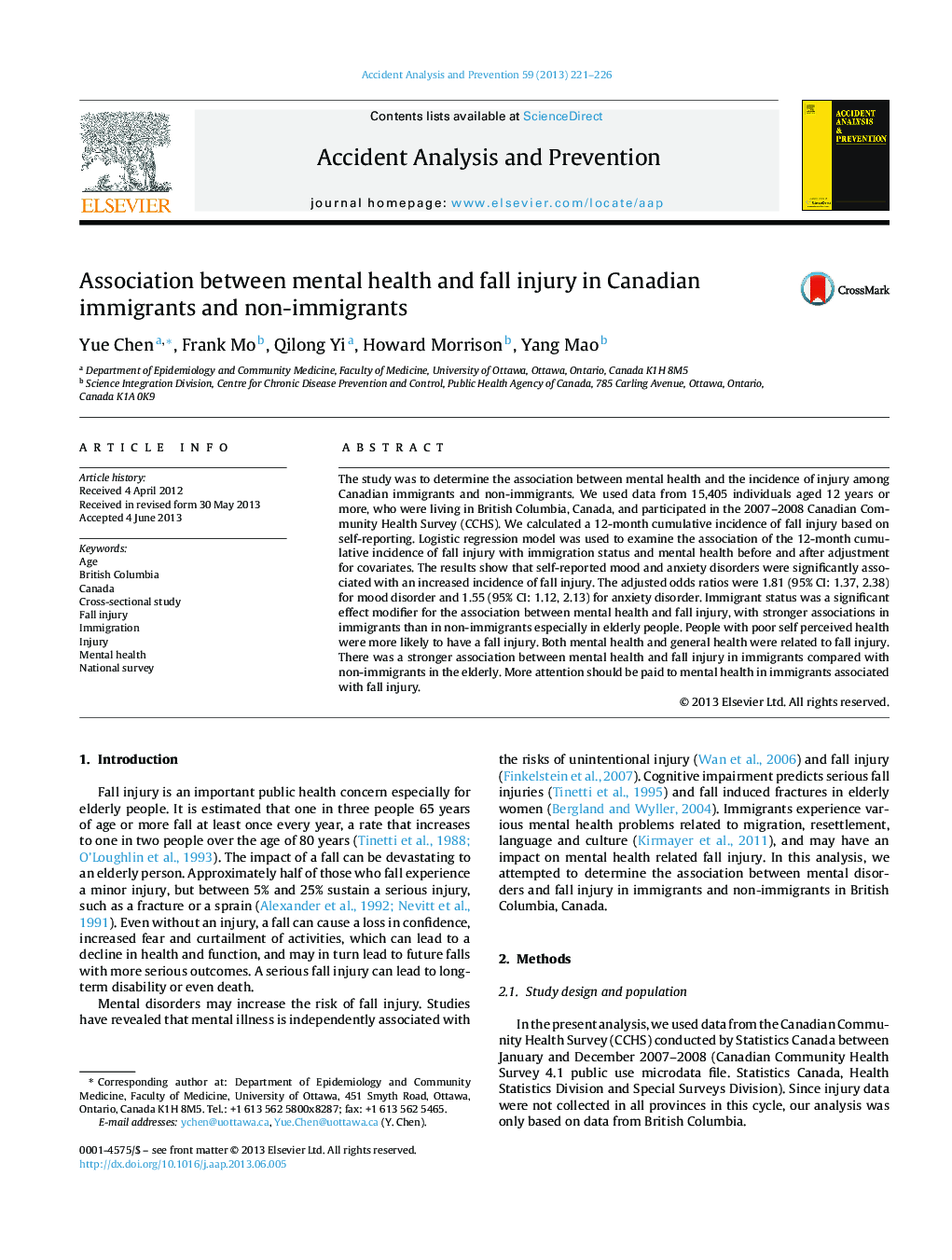| Article ID | Journal | Published Year | Pages | File Type |
|---|---|---|---|---|
| 6966113 | Accident Analysis & Prevention | 2013 | 6 Pages |
Abstract
The study was to determine the association between mental health and the incidence of injury among Canadian immigrants and non-immigrants. We used data from 15,405 individuals aged 12 years or more, who were living in British Columbia, Canada, and participated in the 2007-2008 Canadian Community Health Survey (CCHS). We calculated a 12-month cumulative incidence of fall injury based on self-reporting. Logistic regression model was used to examine the association of the 12-month cumulative incidence of fall injury with immigration status and mental health before and after adjustment for covariates. The results show that self-reported mood and anxiety disorders were significantly associated with an increased incidence of fall injury. The adjusted odds ratios were 1.81 (95% CI: 1.37, 2.38) for mood disorder and 1.55 (95% CI: 1.12, 2.13) for anxiety disorder. Immigrant status was a significant effect modifier for the association between mental health and fall injury, with stronger associations in immigrants than in non-immigrants especially in elderly people. People with poor self perceived health were more likely to have a fall injury. Both mental health and general health were related to fall injury. There was a stronger association between mental health and fall injury in immigrants compared with non-immigrants in the elderly. More attention should be paid to mental health in immigrants associated with fall injury.
Keywords
Related Topics
Physical Sciences and Engineering
Chemical Engineering
Chemical Health and Safety
Authors
Yue Chen, Frank Mo, Qilong Yi, Howard Morrison, Yang Mao,
